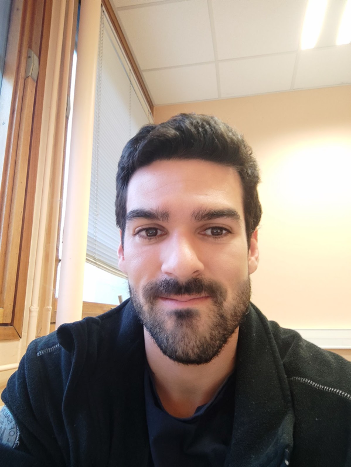Meletti de Oliveira Gabriel
Statut : Post-doctorant/CDD Chercheur
Thème : Terre et Planètes
Site : La Doua/ENS de Lyon
Bureau : R4 / M1 003 (ENS)
adresse mail : gabriel.meletti@univ-lyon1.fr
numéro de téléphone : 04 72 72 85 61

Description du thème de recherche :
Penetrative convection regards the interaction between a convective and a stable density stratified layer and is relevant in various astrophysical and geophysical applications, such as the excitation of waves in the stably stratified upper atmosphere by the convective lower troposphere. In the context of Earth’s interior dynamics, the core is known to be in a convective state that sustains the Earth’s magnetic field by dynamo action. Although seismology does not yet bring a definite answer, a stably stratified layer on the top of the core may exist since the Earth’s origin, as current estimations of the core thermal conductivity would lead to an excessive heat flux coming out of the core to sustain a fully convective region. Against this background, it is important to understand what kind of motion can exist in a potentially stable layer excited by a convective region. These dynamics can be linked, for example, to large scales Earth magnetic field observations. To help answer key questions relative to penetrative convection, an experimental setup was built to investigate the interaction of a stably stratified layer with a convective region. Temperature stratification was used, with hot water on top, and decreasing temperature in the direction of gravity. Since water has a maximum density at 4 degrees celsius, we cool the bottom of the cavity below this temperature to create a convective zone. This experiment is set on a rotating table, to account for rotation effects. The flow is analised using PIV and LIF techniques. The presence of gravity waves in the stable region without rotation was also previously observed using Schlieren technique. The experimental task is made more difficult in a rotating frame but is important to be performed in star and specially planets interior contexts, due to Coriolis forces in the core, that become strong when compared to the ocean or atmosphere applications, for example, since typical velocities (of ~10 -4 m/s for the earth core) become much smaller. These investigations on a rotating frame will also create a rich environment in terms of physical processes, such as rotating convection, and the presence of Inertial-gravity waves due to the stable stratification and rotation.